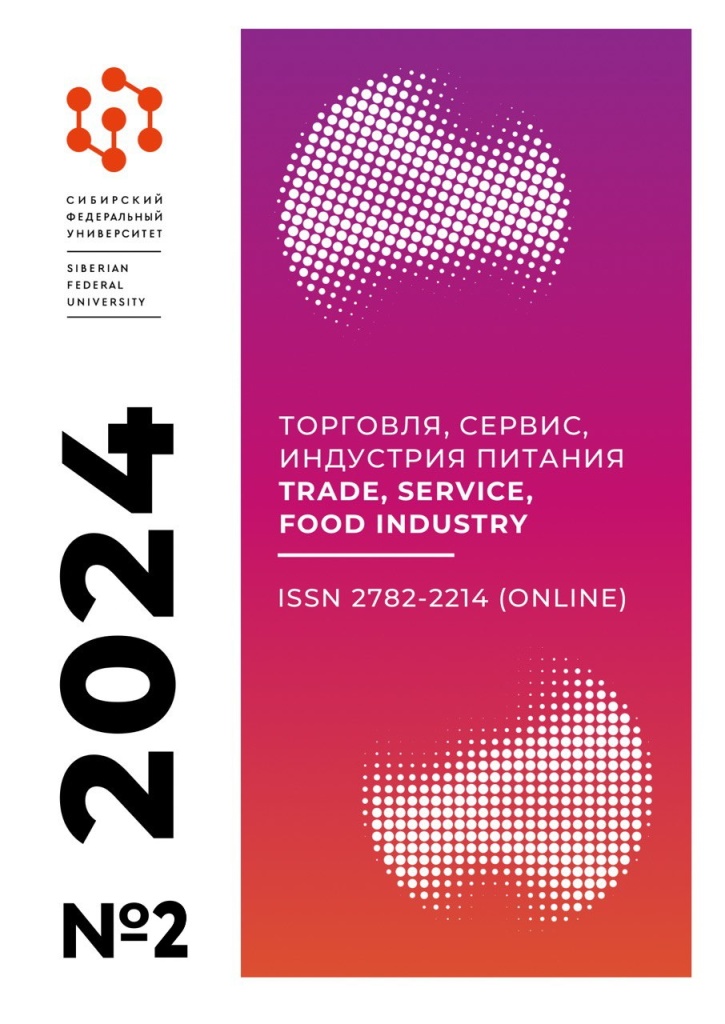Donetsk, Russian Federation
UDC 338.1
UDC 37.014.5
The legislative bases of digitalization of education in the member countries of the Eurasian Economic Union are considered, similarities and differences of their formation are revealed. The expediency of using an integration approach in the development of legislative acts in order to form a single legal Eurasian digital educational space has been established. The analysis of the current state of education of the member countries of the Eurasian Economic Union (EAEU) in the context of digitalization of the economy is carried out according to such indicators as the level of education, the level of coverage of the population with vocational education, the number of students in universities, the number of graduates, the number of students in universities who arrived from other countries of the world, the amount of education funding. The study of digitalization of the scientific and educational space of the EAEU allowed us to identify factors influencing its further development: insufficient level of development of the digital infrastructure of education; inconsistency of educational programs with the needs of the labor market; the lack of a practice-oriented approach in the training of students; the presence of a huge number of universities that train specialists who are dissatisfied with Industry 4.0.
education, digitalization, digital education, Eurasian Economic Union
1. Belevitin, V. A. (2022). Digitalization of education: from formation and development to digital transformation: an educational and methodological guide. Chelyabinsk : Publishing House of the South Ural State Humanitarian University, 131.
2. Vaganova, O. I. (2020). Digitalization as a leading trend in the development of modern education. Baltic Humanitarian Journal, Vol. 9, No 2, 146–148.
3. Fadeeva, O. A. (2022). Transformation of online advanced training courses for teaching staff in digital technologies based on a cognitive-technological approach: dis. ... candidate of Pedagogical Sciences: 5.8.2. Krasnoyarsk, 130.
4. Vladyko, A. V. (2020). Competence of a teacher for effective work in a digital educational environment. Strategies for the development of social communities, institutions and territories: materials of the VI International Scientific and Practical Conference, Yekaterinburg, 27–28 April. Yekaterinburg : Publishing House of UrFU, 263–266.
5. Minina, V. N. (2020). Digitalization of higher education and its social results. Bulletin of St. Petersburg University. Sociology, Vol. 13, No 1, 84–101. DOI:https://doi.org/10.21638/spbu12.2020.106.
6. Robert, I. V. (2020). Axiological approach to the development of education in the context of the digital paradigm. Pedagogical Informatics, 2, 89–113.
7. Robert, I. V. (2020). Digital transformation of education: challenges and opportunities for improvement. Informatization of education and science, 3 (47), 3–16.
8. Robert I. V. (2021). Digital transformation of education: value orientations, development prospects. Innovations, 16, 868–876.
9. Robert, E. V. (2022). Digital transformation education: theory and practice. Omsk : OmSA, 190.
10. Tereshchenko, A. Yu. (2020). Digital educational environment in the context of online education in a modern secondary school. Man in digital reality: technological risks: materials of the V International Scientific and Practical Conference dedicated to the 75th anniversary of Victory in the Great Patriotic War, Tver : TvSTU, 435–439.
11. Antonova, D. A., Ospennikova, E. V., Spirin, E. V. (2018). Digital transformation of the education system. Designing resources for a modern digital learning environment as one of its main directions. Bulletin of the Perm State Humanitarian Pedagogical University. Series: Information computer technologies in education, 14, 5–37.
12. Chan, T., Roschelle, J., His, S., Kinshuk, K., Sharples, M., Brown, T., Patton, C. [et al.]. (2006). One-to-one technology-enhanced learning: An opportunity for global research collaboration. Research and Practice in Technology Enhanced Learning, 1 (1), 3–29.
13. Glenn, M. (2008). The future of higher education: how technology will shape learning. London: Economist Intelligence Unit, 32.
14. Higgins, St., Xiao, Z., Katsipataki, M. (2012). The Impact of Digital Technology on Learning: A Summary for the Education Endowment Foundation. Durham University. [Electronic source] URL: https://www.academia.edu/31764995/The_Impact_of _Digital_Technology_on_Learning_A_Summary_for_the_Education_Endowment_Foundation (Date of access: 05.05.2024).
15. Echenique, E. G., Molías, L. M., Bullen, M. (2015). Students in higher education: Social and academic uses of digital technology. RUSC. Universities and Knowledge Society Journal, 12 (1), 1–11. DOI:https://doi.org/10.7238/rusc.v12i1.2078.
16. Vartanova, E. L. (2017). The industry of Russian media: the digital future: an academic monograph. Moscow : MediaMir, 2017, 160.
17. Lonka, K., Cho, V. (2015). Innovative schools: Teaching & learning in the digital era. Brussels: European Union, 78.
18. Sappey, J. Dr., Relf, St. (2010). Digital Technology Education and its Impact on Traditional Academic Roles and Practice. Journal of University Teaching & Learning Practice, 7 (1), 1–17.
19. Dabbagh, N., Kitsantas, A. (2012). Personal Learning Environments, social media, and self-regulated learning: A natural formula for connecting formal and informal learning // Internet and Higher Education, 15, 3–8.
20. Saykili, A. (2019). Higher education in the digital age: The impact of digital connective technologies. Journal of Educational Technology & Online Learning, 2 (1), 1–15.
21. Gospodarik, E. G. (2023). The role of digitalization in the integration of the scientific and educational space of the EAEU. Digital transformation, Vol. 29, No. 1, 13–22. DOI:https://doi.org/10.35596/1729-7648-2023-29-1-13-22.
22. Kovalev, M. M. (2018). Education for the digital economy. Digital transformation, 1, 37–42.
23. Golovenchik, G. G. (2020). Modern trends in digital education reform. Digital transformation, 4, 5–20. DOI:https://doi.org/10.38086/2522-9613-2020-4-5-20.
24. Kovalev, M. M., He Yanhai (2022). The Chinese experience of International scientific and technical cooperation and its contribution to the knowledge economy. Science and Innovation, Vol. 232, No. 6, 46–52.
25. Biybosunov, B. I., Beksultanov, J. T., Yusupov, K. M. [et al.]. (2020). Problematic tasks of digitalization of the higher education system of Kyrgyzstan. Colloquium-Journal, 6 (58), 126–129.








